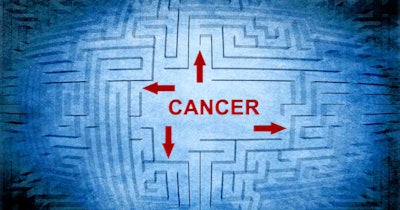
A study that linked microbial signatures to tumor types suffered from “major data analysis errors” that “invalidate cancer microbiome findings,” according to a preprint paper.
The original study, which was published in Nature in 2020, found unique microbial signatures in tissue and blood samples taken from cancer patients. Based on the study, the researchers proposed a new class of microbial-based oncology diagnostics. Micronoma, a startup working to commercialize the approach, received breakthrough designation from the U.S. Food and Drug Administration (FDA) earlier this year.
However, an argument about the validity of the 2020 study has broken out. In January, researchers at the University of East Anglia published a preprint paper that questioned the “the certainty of the conclusions drawn” in the 2020 study, noting that “there are issues in the areas of the contribution of contamination, handling of batch effects, false positive classifications, and limitations in the machine learning approaches used.”
In response, the authors of the 2020 Nature paper published a preprint. According to the authors, “a close examination of each concern alongside the original manuscript and re-analyses of our published data strongly demonstrates the robustness of the original findings.” To “remove all doubt,” the researchers “reproduced all key conclusions from the original manuscript” using a tweaked method.
However, the preprint failed to dispel all of the doubts of the University of East Anglia scientists. Working with collaborators at Johns Hopkins University, the researchers have published a second preprint paper about the 2020 Nature study. In the latest preprint, the researchers claim “fundamental flaws” in the original study invalidate the results and render the conclusions “entirely wrong.”
The preprint prompted a rebuttal by one of the authors of the Nature paper, available on Github. In the rebuttal, the researcher noted that “many of their concerns were concurrently addressed in our peer-reviewed 2022 Cell paper, which employed a wide variety of updated methods.” None of the preprint papers have undergone peer review at present.













